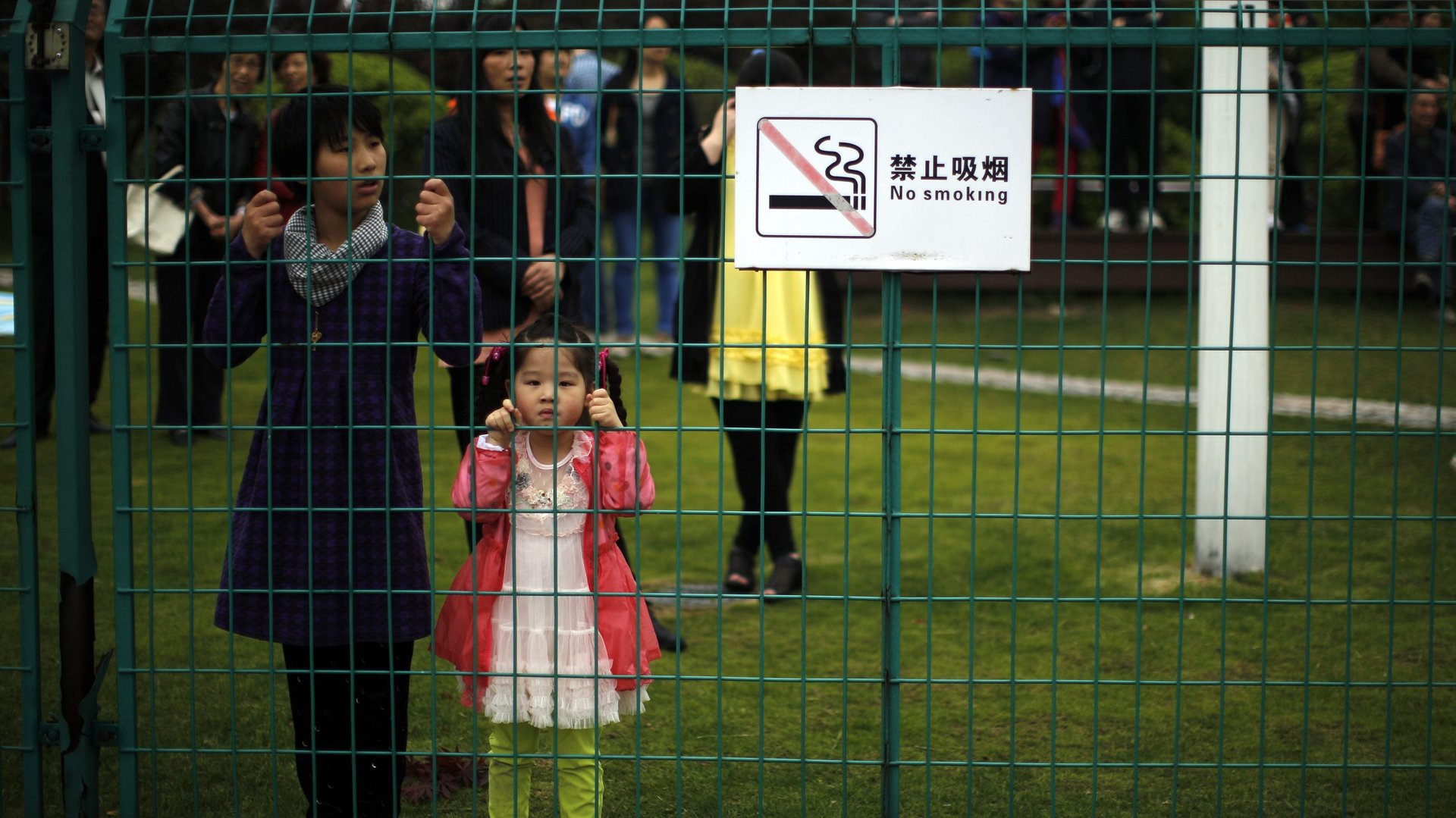Elementary school teachers are no longer allowed to smoke on campus in Shanghai
Teachers in Shanghai’s elementary and middle schools will no longer be able to smoke cigarettes at work.


Teachers in Shanghai’s elementary and middle schools will no longer be able to smoke cigarettes at work.
The city’s People’s Congress passed an amendment (link in Chinese) last Monday (Nov 11) to its Ordinance on Smoking Control in Public Space, which expands its scope. The amendment tightens the rules about smoking in public spaces, for example no longer allowing restaurants and “entertainment premises” to create smoking zones or rooms.
The amendment also officially bans smoking in some outdoor spaces, including outside nurseries, kindergartens, primary schools, and secondary schools. A penalty of 50-200 Yuan (about $7 to $30) will be imposed on those who violate it.
School teachers in China are already forbidden to smoke in front of students and are generally discouraged from smoking on campus, after an order from the Chinese Ministry of Education (link in Chinese) in 2010. As of 2015, roughly half of Shanghai’s primary and secondary schools were classified as “smoke-free,” meaning there is no smoking on campus.
Reactions on Chinese social media are mixed—some support its introduction and some consider it an intrusion on citizens’ human rights. However, some Chinese have reservations about the sincerity of the policy as a whole. On Weibo, a Chinese combination of Facebook and Twitter, one user says (link in Chinese, registration required) that the government is “slapping its own face” by promoting cigarette production and hazards posed by smoking at the same time.
China’s tobacco industry is state-owned, and contributes as much as 10% of the country’s tax revenues. Despite the Chinese government’s increasing effort to combat smoking, the number of smokers and consumption of cigarettes in China is still on a rise. Over 300 million people in China smoke, according to the latest estimates, comprising about a quarter of the population.
According to the Chinese Government (link in Chinese), 18 cities have introduced local regulations on smoking, but they vary in degree of strictness. For example, Beijing has also prohibited smoking in primary and secondary schools, while in Hangzhou the ban is limited to their indoor areas only.